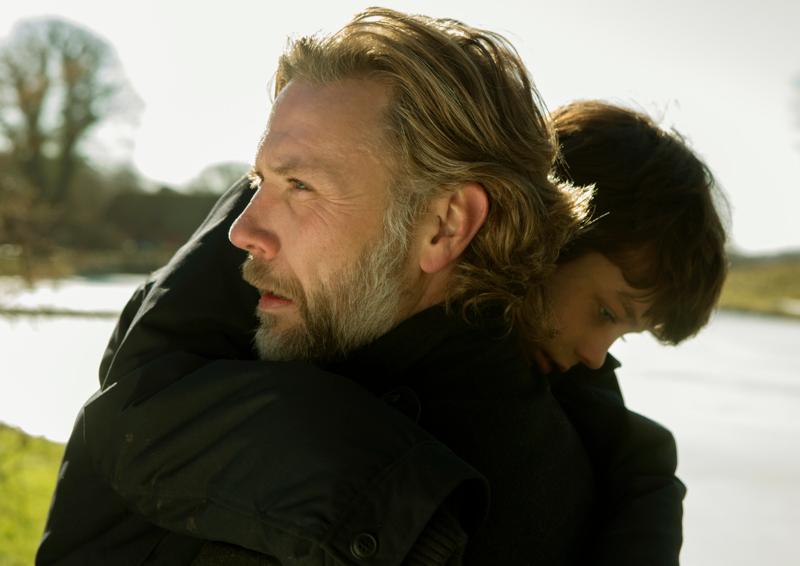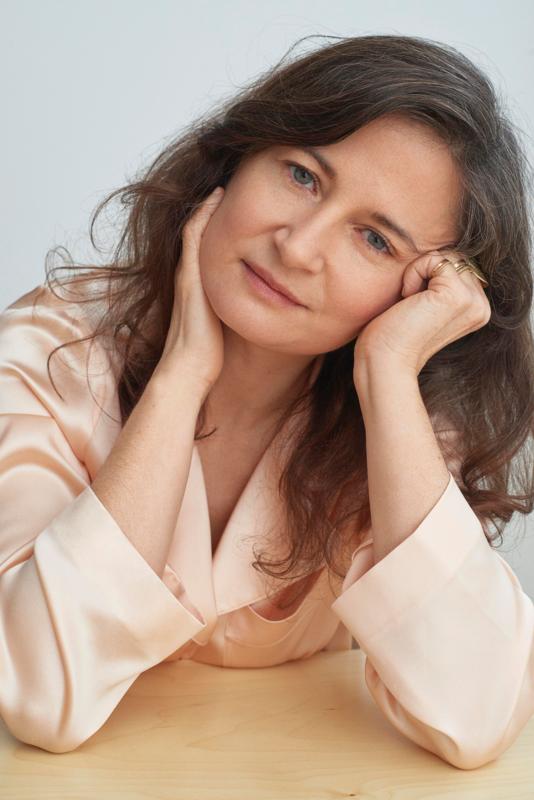In fact, her inclination to make intimate stories goes back to before her feature debut "A Soap". Ever since her first short film, "Habibti My Love", from 2002, Pernille Fischer Christensen has been the uncrowned queen of emotional dramas exploring interpersonal relationships, generally between just two people, in intimate, intense stories. But she never planned to become that kind of director.
"A lot of my films grow out of the characters and my wish to work with a certain actor." – Pernille Fischer Christensen
"When I started film school I had never worked with actors before. I wasn't particularly interested in acting, either. Where I was coming from was more visual and I was more into cinematic experimentation. So, in the beginning I wasn't very good at directing actors and I was pretty nervous about the whole thing, too."
That quickly, and completely, changed. "A Soap" from 2006 centres on the relationship between a recently singled young woman and her transsexual downstairs neighbour. Over the film's 104 minutes, the director's camera barely strays from the two actors, Trine Dyrholm and David Dencik, or the tiny Copenhagen apartments where the film was shot. Her intimate depiction was rewarded with both the Silver Bear and Best Debut Film in Berlin that year.
"It might have something to do with my interest in people in miniature. The 'big things' in life happen between you and me – letdown, despair, love," the director muses.
Stepping outside the four walls of small flats, her 2008 film "Dancers" looked at two people dancing around each other in a story of a dance studio owner who falls in love with an ex-con electrician. This time, Dyrholm played opposite Anders W. Berthelsen. In "A Family" from 2010, the drama unfolds as a small family watches their father get sick and die of cancer.
In "Someone You Love", Fischer Christensen is back with a new intimate drama co-written with her writing and romantic partner, Kim Fupz Aakeson. The story is about a world-famous rock musician, played by Mikael Persbrandt, who returns from the US and grudgingly has to take care of his grown daughter and her young son. Dyrholm is back, too, playing the musician's Danish producer. While the two-room flats have given way to a castle and the ordinary Danish characters have been joined by a star, "Someone You Love" is still a classic Fischer Christensen film – an intimate story between a small handful of people.
Where did you get the idea for a film about a rock star who returns home?
"A lot of my films grow out of the characters and my wish to work with a certain actor. This time, my love fell on Mikael Persbrandt."
"Apart from that, I wanted to work with music. Music means a lot to me in my life. We were always listening to music when I was a kid, and I played music, too. I don't know how to play anything anymore, but I wanted to work with making original music from scratch."
"For some of my other films I did extended improvisation sessions and spent a long time finding the character. In this film I wanted to work with a process of developing the music in parallel with the character and the screenplay to make a cohesive, but also fraught, whole. To me, the film is about a person who believes in Freedom with a capital F. He has tried to free himself from everything. He has freed himself from his background, his parents, his religious and musical upbringing. He has freed himself from his country – he is Swedish but has lived in the States for years. He has freed himself from women – he just got out of a marriage. He has freed himself from the future – in the sense that he has nothing to do with his daughter – and he is free of his addiction. So he's living in a self-made exile of freedom. The film challenges that, and the music helps tell that story."
He has freed himself, but he isn't free. He's like a child who can't do anything himself …
"True. His idea of freedom has become a prison and a bankruptcy of the soul. He thinks he's steering his life in one direction, but he's actually moving in a completely different direction."
Is there an exploration of parenthood in this, too? The character does everything a parent shouldn't do.
"He's certainly not very loving, even to himself. In terms of parenthood, the film is about what I call cleaning house.' As parents, we are all responsible for cleaning up our 'shit' and making sure we don't pass it on to the next generation. This is one of the things the character comes to realise. He thinks his freedom is about letting go of responsibility, when in fact there's just as much freedom in taking responsibility for your life and your actions, and not play the victim. He's still stuck in how he talks about his own father and his face-off with him."
Why did you cast Mikael Persbrandt as Thomas Jacob the rock star?
"With Mikael, I knew I didn't have to do a lot of research. It's no secret that Mikael has had a wild life. He brought a lot to the table. His fierceness in the film isn't something he has to search for very long. Plus, I was looking for an actor who has a lot of masculine power but also something delicate and sensitive about him. That's the paradox or contrast of Mikael's character. On one hand, he's callous and standoffish. On the other hand, he makes the most delicate poetry about love in his songs."
"Mikael is a wild man, probably the wildest person I ever met. Anything you say about him – including as an actor – the opposite is also true. It's a bit like his character in the film. Mikael is really hard-core. One day he shows up looking like a biker, the next day he's all adorable looking, like a ballet dancer. If you suggest something to him, you never know if he's going to go 'I love you' or just give you a look that says, 'That's the most ridiculous thing I ever heard.' It keeps you on your toes, being around him. You can't take anything for granted. He's always challenging you. When we started shooting the scenes, he never went for the obvious or facile."
Who was the model for Thomas Jacob?
"He is a big mishmash of everything I think is exciting and cool, both personality wise and music wise. We talked about Leonard Cohen a lot, the soulfulness and spirituality of his lyrics. And Nick Cave, too, for sure. His ballads are some of the finest songs I know. I have listened, and cried, to them a lot. They always have a strong melody, beauty, but also something devilish about them. That's what I'm always looking for in my characters, the clash between beauty and cruelty."
The songs and lyrics in the film are written by the Danish singer-songwriter Tina Dickow, working from your notes. Was it a conscious choice to give the songs a feminine twist?
"It's hugely interesting to me that this character has such a feminine and sensual side to him. What happens when a man sings something that was written by a woman? Mikael and I talked about that a lot. He said things like, 'A man would never write that he's taking his clothes off.' But why the hell not? That's so awesome! How many paintings haven't I seen of women undressing and stepping into the bath? We're turning the tables now, I told him. Women will love to hear you sing about being present in the moment, in the now."
How did Persbrandt feel about singing?
"He'd never tried it before, so it was a huge challenge. For both of us. Fortunately, Mikael has a beautiful voice. But of course, something happens to you when you sing. It triggers something in you, which can be a pretty powerful thing, because you sing with your body. It opens up feelings. That was a big thing for him. He conquered himself by doing it."
"Someone You Love", selected for Berlinale Special (Gala screening), is produced by Sisse Graum Jørgensen and Vinca Wiedemann for Zentropa.
Trailer

